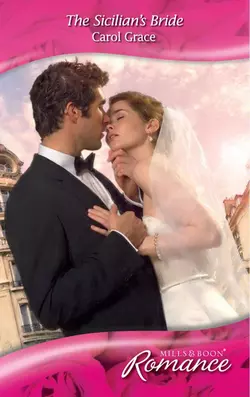The Sicilian′s Bride

Carol Grace
Тип: электронная книга
Жанр: Современные любовные романы
Язык: на английском языке
Стоимость: 444.68 ₽
Статус: В продаже
Издательство: HarperCollins
Дата публикации: 16.04.2024
Отзывы: Пока нет Добавить отзыв
О книге: When a stubborn redhead meets… Inheriting a Sicilian vineyard and tumbledown farmhouse is Isabel Morrison’s chance to start again. A graduate of the school of hard knocks, she’s determined to stand on her own two feet. …a proud and passionate Italian…Local vintner Dario Montessori wants Isabel’s land. It once belonged to his family and he blames himself for losing it. He’ll do anything to claim his vineyard – and only a stubborn redhead stands in his way… Escape Around the World Dream Destinations, Whirlwind Weddings!